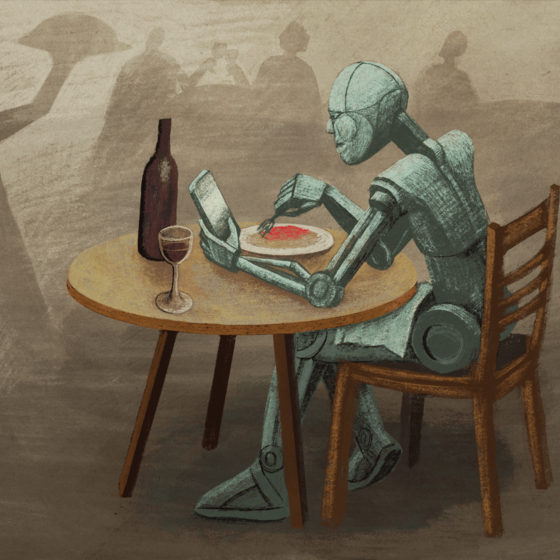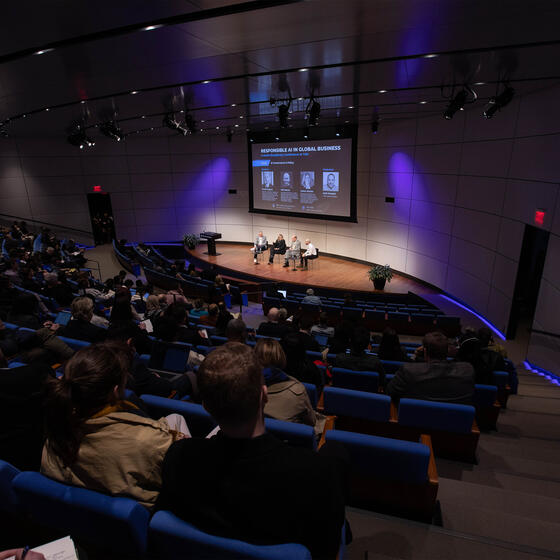Are You Ready for AI?
Of the many technologies that have changed our lives since the invention of the microchip, generative AI may have had the most dramatic debut. ChatGPT is likely the fastest-growing internet service ever, and every major tech company is scrambling to incorporate large language models into their products. We’ve been talking with Yale faculty and alumni about the potential of the technology to both advance and disrupt our society.

Who Is Responsible When AI Breaks the Law?
Former Secretary of Homeland Security Michael Chertoff and Miriam Vogel, president and CEO of EqualAI, survey how AI both fits in and breaks existing legal frameworks. They argue that leaders need to be ready for the opportunities created by the novel technology and for potential legal pitfalls.

AI Can Write a More Believable Restaurant Review Than a Human Can
Yale SOM’s Balázs Kovács used ChatGPT to write a series of Yelp-style reviews, as well as collecting real reviews from the site, and then asked human subjects to decide which was the real thing. They were more convinced of the authenticity of the AI-written reviews.

Is AI a Savior or a Peril—or Both?
With applications of artificial intelligence spreading from the realm of data science to the apps at your fingertips, a day-long conference at the Yale School of Management considered how to unlock the technology’s positive potential while containing possibilities for misuse, misinformation, and labor-market mayhem.

What Have the Bots Learned about Us?
The emergence of generative AI has opened new possibilities for the mass creation and dissemination of misinformation. Are the major social media platforms ready? We talked to Prof. Tauhid Zaman, who studies how bots manipulate opinion on social networks.

Can ChatGPT Accelerate Social Science Research?
Yale SOM’s Balázs Kovács and his co-authors spent years designing a computer-based method to measure “typicality.” In a new study, they found that ChatGPT could duplicate their results at a fraction of the cost.

For Companies Eyeing AI, the Question Is ‘When, Not If’
Generative AI may well be transformative, but firms will need to make judgments on whether the costs, challenges, and risks of being a first mover makes sense.

Can AI Help Design a More Appealing Car?
Designing a new car is expensive, time-consuming, and risky. In a new study, Yale SOM’s Alex Burnap shows how machine learning can identify promising models and help designers generate new designs.

Putting AI on Every Team
Is artificial intelligence ready to become a standard business tool? McKinsey’s Bryce Hall ’12 says that combining human expertise and judgment with AI’s data-driven recommendations is a challenging but powerful way to deliver business results.








